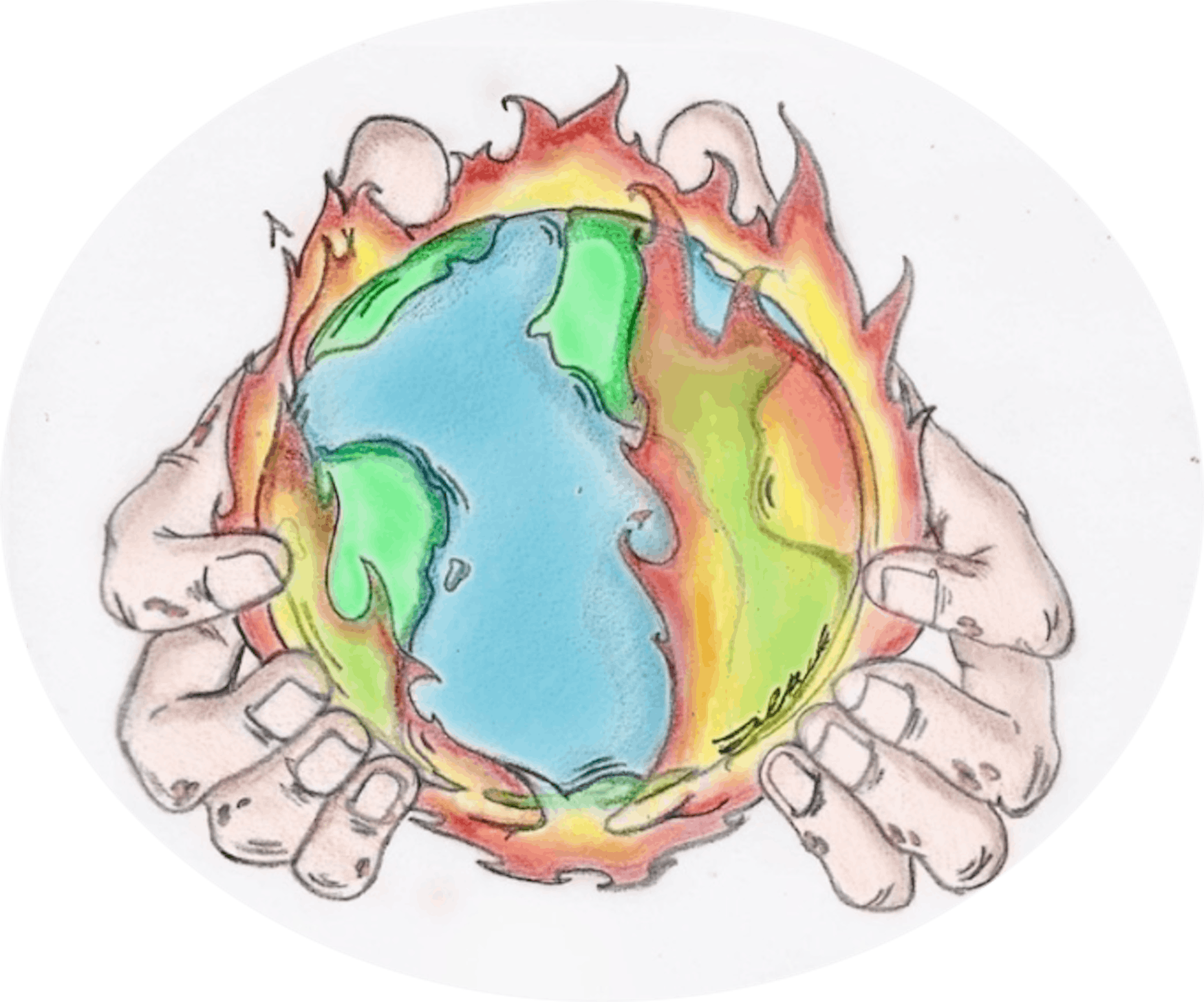A meditation on climate change
Over the past century, powerful individuals have made decisions that have irreversibly destroyed the planet. The exigent state of our climate is something that has been brushed off by world governments for decades. This reality is, understandably, incredibly overwhelming for the majority of people to hear.
This modern existential threat looms over humanity’s consciousness, and most discussions around the topic inevitably lead to fear mongering and doomsday bells. In my opinion, this approach is a fair emotional response to a crisis of this magnitude. However, in an era where the validity of is constantly questioned, in order to convince people to take action and take this situation seriously there has to be a better approach than anxiously inspiring “Lovecraftian” terror among people who legitimately want to help.
It’s been scary watching as climate change becomes more apparent over the past few years. CNN published an article in Dec 2022 highlighting the most intense manifestations of climate change. While reading that article, the tragedy of Hurricane Nicole stuck out to me because it was the first hurricane to hit the United States in nearly 40 years.
Though the hurricane was only level 1, the event caused massive and destructive wind fields that traveled over 500 miles and affected my home in Georgia.
I’ve tried for a while to engage myself in reversing climate change. I was on trend when VSCO girls of TikTok championed reusable straws to save the turtles and engaged in petty sparring matches with climate change deniers in Twitter threads. But as I returned home for my 2022 Thanksgiving break and saw the terrifying effects of climate change with my own eyes, I froze.
The threat was too real now. Though my home is deeply embedded in the metro Atlanta area, hundreds of miles from where Hurricane Nicole lightly tapped the east coast of Florida, the damage my town faced was palpable. My community was afflicted with casualties of downed trees and days long power outages.
I began to spiral. If this was only a level 1 hurricane hundreds of miles away and it did this, what would a stronger one do? This fear was almost paralyzing at first, I panicked and tried to ignore the problem, but it continues to worsen. I’ve continued reducing waste when I can by avoiding one-use-plastics and bringing reusable bags when shopping, but it’s not enough. Thankfully, there have been a handful of major steps taken to slow the effects of climate change.
A fund created at the United Nations Environment Programme climate summit to help vulnerable nations recover from climate related disasters. And President Biden passed a major climate bill anticipated to reduce the United States’ carbon emissions by roughly 40% by 2030.
These are monumental changes finally being made in the right direction, but if you’re like me this might not feel like enough. Perhaps I’m jaded, because this has been an issue for so long and it’s only now that seemingly obvious steps are being taken.
So what can we do?
1. A major change that should be made — that needs to be made — is keeping up with elections and choosing individuals that have the people’s and the planet’s best interest in mind.
2. Directly donate to charities and support industries that have promised to help the Earth and have also taken strides to do so. Talk is cheap after all.
a. The Sunrise Movement is a movement of young people across race and class to stop the climate crisis and win a Green New Deal. Their goal is to “force the government to end the reign of fossil fuel elites; invest in Black, brown, and working class communities; and create millions of good union jobs.
b. Founders Pledge climate change fund’s mission is to support highlyimpactful, evidence-based solutions to the triple challenge of climate change, air pollution, and energy poverty.
c. Clean Air Task Force is a non-governmental organization operating out of the United States that has been working to reduce air pollution since 1996. It has successfully helped establish regulations of diesel, shipping, and methane emissions.
3. Small changes anyone reading this can make today are to simply live a more eco-friendly lifestyle. That means drinking out of reusable water bottles, buying reusable utensils, not eating out as much so you don’t receive disposable containers, walking and biking more places, etc.
Trust me, my goal is not to fearmonger by telling tales of the dangers of plastic or shame anyone into buying an expensive electric car. I’ve been so shaken by the scope of climate change that I wasn’t sure if it was actually possible to make a difference as an individual.
But there are so many ways, big and small, that we can contribute to slowing down the effects of climate change and hold onto the planet for a little longer. A lot of the work to save our planet requires collective efforts toward that goal. This is a daunting task, and it may seem easier to give up, but we simply cannot.




Please note All comments are eligible for publication in The Justice.